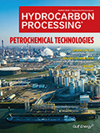Desulfurization
Asia refining margins at lowest seasonal levels since 2020 as supplies grow
Asian refiners' margins slumped to their lowest seasonal levels since 2020 this week as supplies of diesel and gasoline rose after peak summer travel demand ended
U.S. Patent Office issues 4th patent for Alternative Environmental Technologies’ Sulfex™ desulfurization tech
Alternative Environmental Technologies Holdings Corp. (AET) has just been notified of the imminent issuance by the U.S. Patent Office of yet another patent directed to its Sulfex™ desulfurization technology.
Meet gasoline quality and process safety requirements through new alkylation technologies
The catalytic alkylation process is very attractive to countries with high gasoline consumption and a sizable availability of LPG. This process can produce high-octane gasoline with low levels of contaminants, although there are high capital investment and operational costs associated with this technology.
TotalEnergies Marine Fuels supplies its first B100 biofuel bunker in Singapore
TotalEnergies Marine Fuels supplied its first B100 biofuel bunker in Singapore, marking a significant expansion in its low-carbon fuels offer as it supports the decarbonization of global shipping.
NextChem to conduct a feasibility study for a 60,000-tpy SAF plant in Indonesia
NextChem (Sustainable Technology Solutions) has been awarded a feasibility study, along with PT Tripatra Engineers and Constructors, for a 60,000-tpy sustainable aviation fuel project located in Sei Mangkei, Indonesia.
United is first airline to purchase SAF for O'Hare Int'l airport (Chicago, U.S.)
United Airlines will purchase 1 MMgal of sustainable aviation fuel from Neste for use at Chicago's O'Hare International Airport.
Hydrogen-rich content gasoline: A new concept for paraffinic gasoline reformulation
Several refiners are evaluating a new gasoline-formulation technology called hydrogen (H2)-rich-content (HRC) gasoline. This patented technology uses low-sulfur, H2-rich refinery blendstocks like straight-run gasoline, isomerates, alkylate, butanes and renewable naphtha in gasoline blends, and adds aromatic amines (a high-octane gasoline additive) to make a drop-in specification gasoline.
Vietnam's Binh Son refinery plans new share issue to fund $1.5-B expansion
Vietnam's Binh Son Refining and Petrochemical said it plans to issue new shares as part of its efforts to fund a $1.5-B project to expand and upgrade its Dung Quat refinery.
Pemex is delivering only a fraction of feedstock to new Olmeca refinery
Mexican state energy company Pemex started sending 16,300 bpd of crude oil to its new Olmeca refinery this week, less than 5% of its total capacity, signaling another delay.
Iran to boost gasoline, diesel production as new units go online
Jalil Salari, Managing Director, National Iranian Oil Refining and Distribution Company (NIORDC), provided an update on the country's refining units going online this year, which will significantly boost domestic gasoline and diesel production.

- China's Wanhua Chemical starts operation at new east China cracker 4/4
- Brookfield Infrastructure announces the acquisition of Colonial Enterprises for $9 B 4/4
- PBF restarts some units at Martinez refinery after February fire; fire-damaged units remain shut 4/4
- Japan to curb gasoline prices from June to cushion U.S. tariff blow 4/4
- Evonik presents innovative "Debonding on Demand" concept for more sustainable bonding 4/3
- Oil, gas and refined product imports exempted from Trump’s sweeping tariffs 4/3




